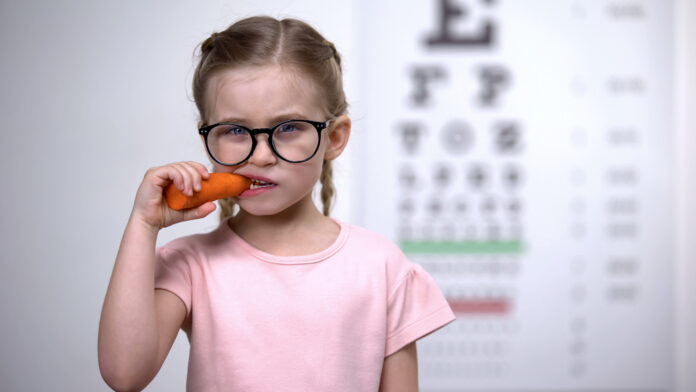
It’s crucial to have reasonable expectations if you want to improve your vision. While there isn’t a quick way to naturally improve your eyesight, several activities can help or hurt your eyes in general. You can promote the health of your eyes and eyesight by making some healthy lifestyle modifications.
Eating Your Way to Better Eyesight
One of the greatest methods to preserve eye health and receive the nutrients you need is to eat a healthy, balanced diet. The following are some essential nutrients and typical sources of those nutrients:
Vitamin A: carrots, sweet potatoes, and cantaloupes
Vitamin C: oranges, peaches, and tomatoes
Vitamin E: avocadoes, almonds, and sunflower seeds
Omega 3 – Fatty Acids: tuna, halibut, and chia seeds
Zinc: kidney beans, lima beans, and oysters
These nutrients play a crucial role in the body’s ability to maintain the health of the eyes.
Your Eyesight and Blood Flow
The eye is a relatively sensitive organ with arteries that supply blood to important areas of it, allowing nutrients and oxygen to reach your cells. Your eye will be able to maintain itself better with a healthy blood flow. The health of your eyes might also be adversely affected by insufficient blood flow or a deficiency in the nutrients that blood is supposed to carry.
Can Natural Supplements Improve Your Eyesight?
It’s debatable if vitamins can improve someone’s eye health. The fact that many supplements are costly and many popular brands make generalized claims about improving your vision health in ways that are not backed by science further confuses the conversation.
Most often, experts seem to at least suggest that getting one’s nutrients from the diet is preferable. Therefore, it is preferable to put your total diet ahead of supplement consumption.
What Actions Can Improve Your Vision?
The CDC has offered some practical recommendations for avoiding vision loss:
- Ask a doctor to perform thorough eye examinations on a regular basis.
- Find out about the medical history of your family to better understand your risk factors.
- Maintaining a healthy weight lowers your risk of getting a variety of diseases that can harm your eyes and general health.
- Stay away from drugs and smoking that could harm your circulatory system.
- When going outside, protect your eyes from the sun’s UV radiation by wearing sunglasses.
- Wash your hands frequently and take care of your contact lenses according to professional advice to maintain excellent hygiene.
- Always take precautions to keep your eyes safe, especially in industrial and other settings.
- Maintain your blood sugar levels if you have diabetes. Non-diabetics should also be aware of this, but typically, the body does this function on its own.
It is thought that you can significantly lower your risk of vision loss by putting as many of these into practice as possible.
https://www.cdc.gov/visionhealth/risk/tips.htm
https://kraffeye.com/blog/10-foods-to-improve-eyesight
https://pubmed.ncbi.nlm.nih.gov/1153528/


















